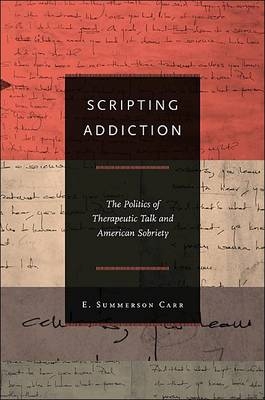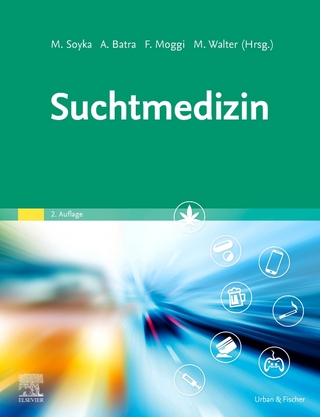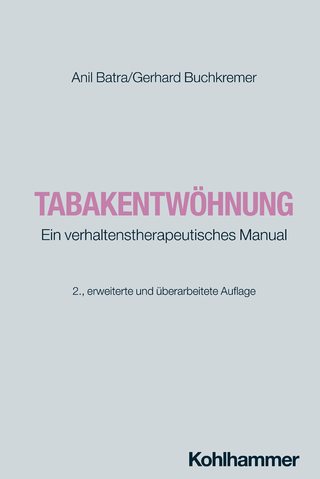
Scripting Addiction
The Politics of Therapeutic Talk and American Sobriety
Seiten
2010
Princeton University Press (Verlag)
978-0-691-14449-8 (ISBN)
Princeton University Press (Verlag)
978-0-691-14449-8 (ISBN)
- Titel ist leider vergriffen;
keine Neuauflage - Artikel merken
Takes readers into the ritualized world of mainstream American addiction treatment. This book explores the puzzling question: why do addiction counselors dedicate themselves to reconciling drug users' relationship to language in order to reconfigure their relationship to drugs?
"Scripting Addiction" takes readers into the highly ritualized world of mainstream American addiction treatment. It is a world where clinical practitioners evaluate how drug users speak about themselves and their problems, and where the ideal of 'healthy' talk is explicitly promoted, carefully monitored, and identified as the primary sign of therapeutic progress. The book explores the puzzling question: why do addiction counselors dedicate themselves to reconciling drug users' relationship to language in order to reconfigure their relationship to drugs? To answer this question, anthropologist Summerson Carr traces the charged interactions between counselors, clients, and case managers at 'Fresh Beginnings', an addiction treatment program for homeless women in the midwestern United States. She shows that shelter, food, and even the custody of children hang in the balance of everyday therapeutic exchanges, such as clinical assessments, individual therapy sessions, and self-help meetings. Acutely aware of the high stakes of self-representation, experienced clients analyze and learn to effectively perform prescribed ways of speaking, a mimetic practice they call 'flipping the script'.
As a clinical ethnography, Scripting Addiction examines how decades of clinical theorizing about addiction, language, self-knowledge, and sobriety is manifested in interactions between counselors and clients. As an ethnography of the contemporary United States, the book demonstrates the complex cultural roots of the powerful clinical ideas that shape therapeutic transactions - and by extension administrative routines and institutional dynamics - at sites such as 'Fresh Beginnings'.
"Scripting Addiction" takes readers into the highly ritualized world of mainstream American addiction treatment. It is a world where clinical practitioners evaluate how drug users speak about themselves and their problems, and where the ideal of 'healthy' talk is explicitly promoted, carefully monitored, and identified as the primary sign of therapeutic progress. The book explores the puzzling question: why do addiction counselors dedicate themselves to reconciling drug users' relationship to language in order to reconfigure their relationship to drugs? To answer this question, anthropologist Summerson Carr traces the charged interactions between counselors, clients, and case managers at 'Fresh Beginnings', an addiction treatment program for homeless women in the midwestern United States. She shows that shelter, food, and even the custody of children hang in the balance of everyday therapeutic exchanges, such as clinical assessments, individual therapy sessions, and self-help meetings. Acutely aware of the high stakes of self-representation, experienced clients analyze and learn to effectively perform prescribed ways of speaking, a mimetic practice they call 'flipping the script'.
As a clinical ethnography, Scripting Addiction examines how decades of clinical theorizing about addiction, language, self-knowledge, and sobriety is manifested in interactions between counselors and clients. As an ethnography of the contemporary United States, the book demonstrates the complex cultural roots of the powerful clinical ideas that shape therapeutic transactions - and by extension administrative routines and institutional dynamics - at sites such as 'Fresh Beginnings'.
E. Summerson Carr is assistant professor at the School of Social Service Administration and an affiliated faculty member in the Department of Anthropology and at the Center for Gender Studies at the University of Chicago.
List of Illustrations ix Acknowledgments xi Introduction: Considering the Politics of Therapeutic Language 1 Chapter One: Identifying Icons and the Policies of Personhood 23 Chapter Two: Taking Them In and Talking It Out 49 Chapter Three: Clinographies of Addiction 85 Chapter Four: Addicted Indexes and Metalinguistic Fixes 121 Chapter Five: Therapeutic Scenes on an Administrative Stage 151 Chapter Six: Flipping the Script 190 Conclusion 224 Notes 239 References 279 Index 317
| Erscheint lt. Verlag | 7.11.2010 |
|---|---|
| Zusatzinfo | 2 halftones. 11 line illus. 2 tables. |
| Verlagsort | New Jersey |
| Sprache | englisch |
| Maße | 152 x 235 mm |
| Gewicht | 595 g |
| Themenwelt | Medizin / Pharmazie ► Medizinische Fachgebiete ► Suchtkrankheiten |
| Naturwissenschaften ► Biologie ► Humanbiologie | |
| Sozialwissenschaften ► Ethnologie | |
| Sozialwissenschaften ► Soziologie | |
| ISBN-10 | 0-691-14449-4 / 0691144494 |
| ISBN-13 | 978-0-691-14449-8 / 9780691144498 |
| Zustand | Neuware |
| Haben Sie eine Frage zum Produkt? |
Mehr entdecken
aus dem Bereich
aus dem Bereich


